Brahmjit Singh
Soft Computing Framework for Routing in Wireless Mesh Networks: An Integrated Cost Function Approach
Jul 11, 2013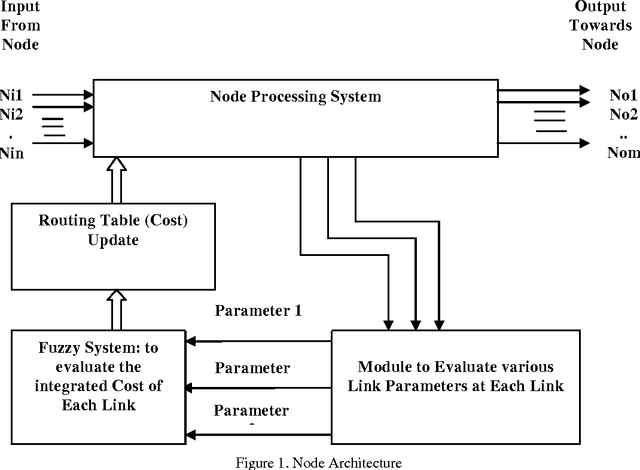

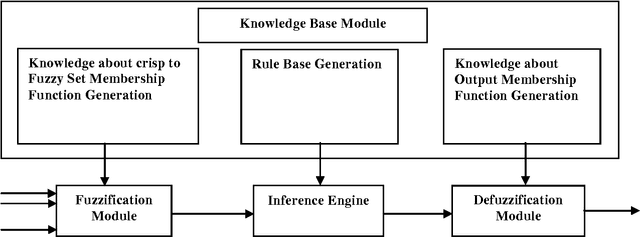
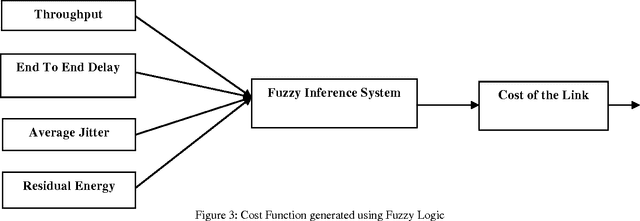
Abstract:Dynamic behaviour of a WMN imposes stringent constraints on the routing policy of the network. In the shortest path based routing the shortest paths needs to be evaluated within a given time frame allowed by the WMN dynamics. The exact reasoning based shortest path evaluation methods usually fail to meet this rigid requirement. Thus, requiring some soft computing based approaches which can replace "best for sure" solutions with "good enough" solutions. This paper proposes a framework for optimal routing in the WMNs; where we investigate the suitability of Big Bang-Big Crunch (BB-BC), a soft computing based approach to evaluate shortest/near-shortest path. In order to make routing optimal we first propose to replace distance between the adjacent nodes with an integrated cost measure that takes into account throughput, delay, jitter and residual energy of a node. A fuzzy logic based inference mechanism evaluates this cost measure at each node. Using this distance measure we apply BB-BC optimization algorithm to evaluate shortest/near shortest path to update the routing tables periodically as dictated by network requirements. A large number of simulations were conducted and it has been observed that BB-BC algorithm appears to be a high potential candidate suitable for routing in WMNs.
* 8 pages, 19 Figures
Routing in Wireless Mesh Networks: Two Soft Computing Based Approaches
Jul 11, 2013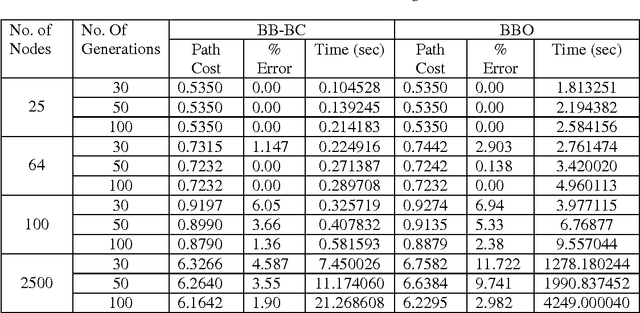
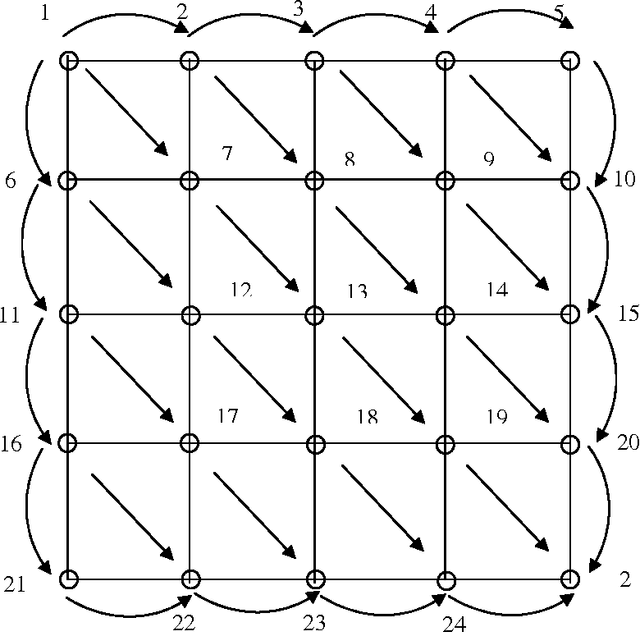

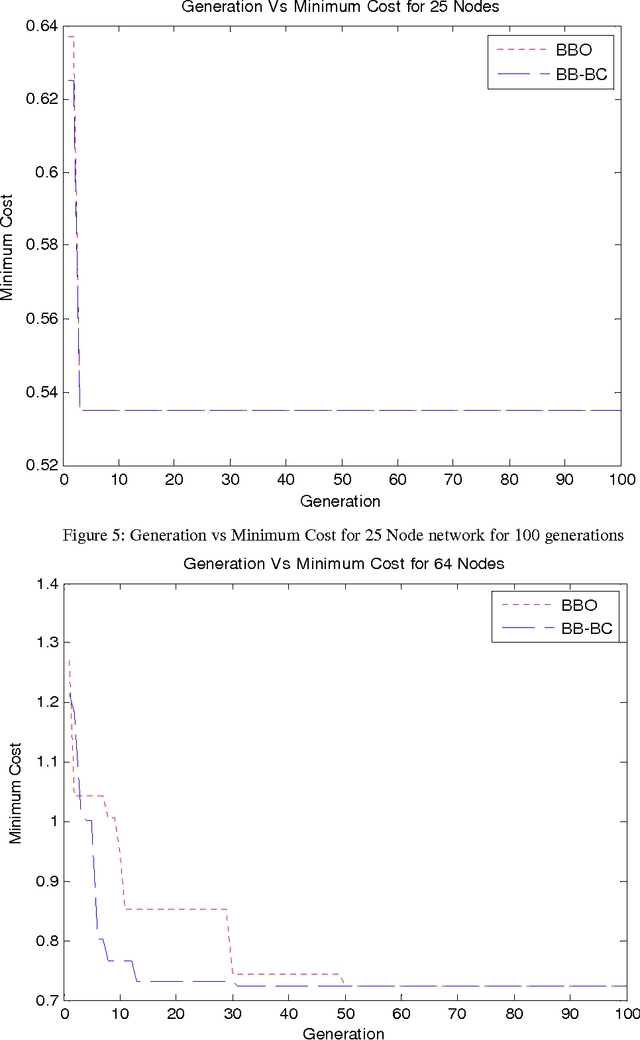
Abstract:Due to dynamic network conditions, routing is the most critical part in WMNs and needs to be optimised. The routing strategies developed for WMNs must be efficient to make it an operationally self configurable network. Thus we need to resort to near shortest path evaluation. This lays down the requirement of some soft computing approaches such that a near shortest path is available in an affordable computing time. This paper proposes a Fuzzy Logic based integrated cost measure in terms of delay, throughput and jitter. Based upon this distance (cost) between two adjacent nodes we evaluate minimal shortest path that updates routing tables. We apply two recent soft computing approaches namely Big Bang Big Crunch (BB-BC) and Biogeography Based Optimization (BBO) approaches to enumerate shortest or near short paths. BB-BC theory is related with the evolution of the universe whereas BBO is inspired by dynamical equilibrium in the number of species on an island. Both the algorithms have low computational time and high convergence speed. Simulation results show that the proposed routing algorithms find the optimal shortest path taking into account three most important parameters of network dynamics. It has been further observed that for the shortest path problem BB-BC outperforms BBO in terms of speed and percent error between the evaluated minimal path and the actual shortest path.
* 11 Pages, 7 Figures
 Add to Chrome
Add to Chrome Add to Firefox
Add to Firefox Add to Edge
Add to Edge